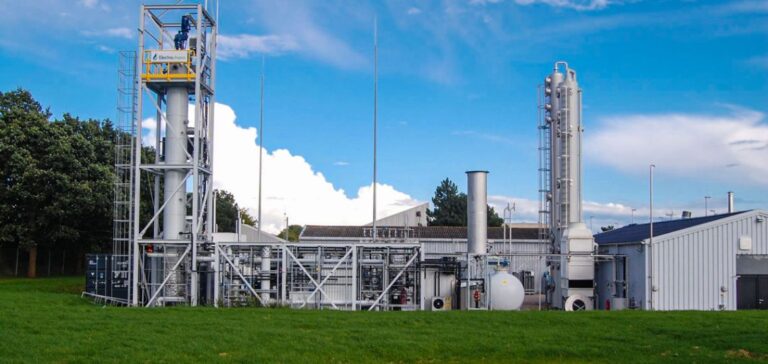Electrochaea, a company specializing in the production of synthetic methane from hydrogen, and Hitachi, a major player in energy technology, have announced a strategic partnership to introduce this technology in Japan. This development aims to strengthen the supply of sustainable energy solutions in a market where the demand for renewable energy is rapidly growing. The agreement will allow Hitachi to deploy Electrochaea’s technology in large-scale projects in Japan, a country seeking to diversify its energy sources while reducing its carbon footprint.
Synthetic methane, produced from hydrogen and captured CO2, presents a viable alternative to fossil methane, with applications in electricity production and as a fuel in various sectors. By using it as an energy carrier, this technology could not only meet Japan’s energy needs but also promote a greener energy transition, particularly in the context of reducing greenhouse gas emissions.
A Strategic Partnership for Innovation
This partnership leverages Electrochaea’s expertise in converting CO2 into methane profitably and Hitachi’s ability to provide the necessary infrastructure to deploy this technology at scale. The production of synthetic methane has a major advantage: it allows the integration of renewable energies, such as wind and solar, into a more stable and flexible energy grid. Indeed, synthetic methane can be stored and transported through existing infrastructure, which is an asset for Japan, which has a well-developed natural gas network.
Japan, which is looking to shift towards less polluting energy solutions, has already adopted several strategies aimed at decarbonizing its energy sector. The collaboration between Electrochaea and Hitachi could play a key role in diversifying energy sources, with the introduction of this innovative technology that could also help the country meet its long-term climate goals.
Economic and Technological Challenges for Japan
The Japanese energy market has specific needs in terms of energy security and emission reductions, as well as technical requirements related to cost management and resource optimization. Introducing synthetic methane would reduce Japan’s reliance on natural gas imports while supporting its climate objectives. However, the success of this technology will depend on the ability of the companies to overcome challenges related to profitability at scale and implementation in conditions specific to the Japanese market.
The partnership between Electrochaea and Hitachi also stands out for its potential to stimulate innovation in the energy infrastructure field, offering solutions capable of integrating various forms of renewable energy more seamlessly. This could position Japan as a leader in synthetic methane technology in Asia while strengthening its commitment to decarbonization.






















